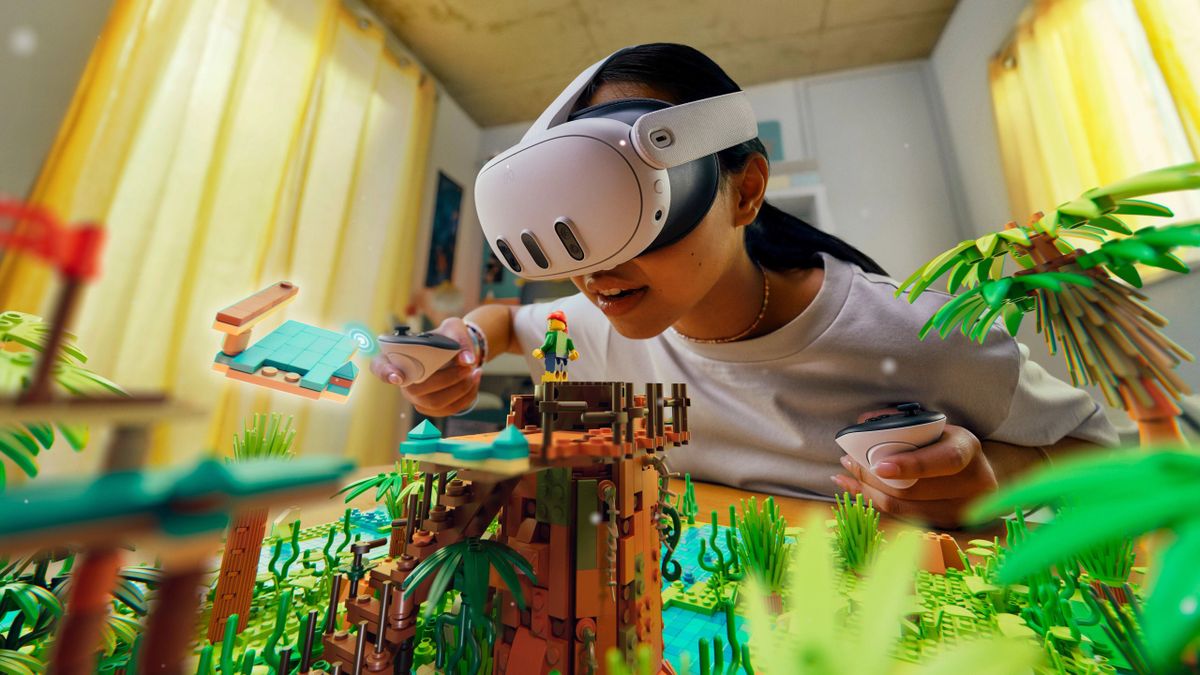When the Meta Quest 3 was unveiled I was impressed by a lot of what it had to offer in both the virtual- and mixed-reality departments, but by far the most interesting feature was Augments – persistent MR elements that you can use to decorate your home. As we approach the one-year mark since the headset was unveiled, Meta’s CTO has finally explained why Augments haven’t launched yet.
If you’ve forgotten about Augments, the concept is they’re a mixture of functional and visual mixed-reality decorations. Some are just meant to look pretty or offer basic functions, like a clock, while others act as portals to your favorite games or quick access to your favorite apps. You can see a version of them in your VR Meta Home as the little pod that launches First Encounters.
When the Quest 3 was first shown off back in September 2023 at Meta Connect 2023 we saw a little of what Augments would offer, and a promise that they’d launch in the not-too-distant future. Now Andrew Bosworth, Meta’s CTO, has revealed on Instagram that back in January Meta “decided it wasn’t good enough,” and so the team decided “to go back to the drawing board.”
Bosworth explained that Augments felt too much like a toy rather than living up to what Meta felt it had promised and wanted to deliver. However, in order to improve the feature it needed to start from scratch with a “completely different technical architecture.”
As a result the feature has been delayed, and Bosworth didn’t provide any kind of timeline for when we might eventually see Augments in action.
With September’s Meta Connect 2024 fast approaching there’s a small chance we’ll see the feature again there, but I hope the next time we see Augments is when Meta is actually ready to it to the public.
Over-promise, under-deliver
Meta is developing a worrying habit of teasing updates and hyping up features that it then takes way longer than expected to release, or which don’t live up to expectations.
Augments are the latest example, but we’ve seen it take a year to roll out virtual legs, and oversell the metaverse way ahead of when it could feasibly work as described, while hardware-wise the Meta Quest Pro wound up being a disappointment compared with more budget-friendly offerings like the Quest 3 that launched not long after – with software like Batman: Arkham Shadow being released as a Quest 3 exclusive and skipping the Pro.
I think Meta is also doing a lot of exciting things in the XR space (a catchall for VR, AR and MR); it recently made Horizon OS available to third-party hardware makers, and I love that it gets frequent software improvements. But its errors stick out and if they persist it’ll be a challenge to trust the announcements Meta makes until the product is actually in people’s hands – either physically or virtually.
Going into Meta Connect 2024 I hope Meta takes on board the lessons it’s learned over the past couple of years, and as we go beyond the press conference I’d like to see it be more open with its plans, and with obstacles it faces. Setbacks happen, but if a major feature is getting delayed maybe let us know when that decision is made, rather than leaving us in the dark for months.
